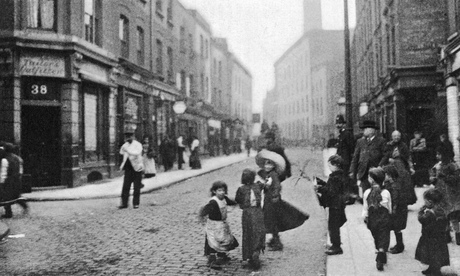The British poet tells the tale of a Russian-Jewish immigrant sentenced to life imprisonment for the murder of an unpopular landlord in 1911

Kit Wright’s work is a bracing reminder that rhythm is a limitless resource of language, and that poetry need not sacrifice verbal subtleties to raise its voice in song. Speakable and readable, his new collection ranges from the manic mock heroics of the title poem, Ode to Didcot Power Station, to the descriptive intimacies of the sequence Talking to the Weeds. Not by any means a routinely formal poet, Wright typically invents his own brand of rhythmic repetition, drawing out chimes and patterns as a source of comic intensification. This week’s poem, Lament for Stinie Morrison, is tragedy rather than comedy, deploying a semi-cumulative form, faintly reminiscent of The House that Jack Built, to build up a blaze of outrage and regret.
Stinie (sometimes Steinie) Morrison, originally Alexander Petropavloff, was a Russian-Jewish, East End immigrant and a convicted burglar. In 1911 he was found guilty, on thinly circumstantial evidence, of the murder of an unpopular local landlord, Leon Beron. His death sentence was commuted to life imprisonment by Winston Churchill, the home secretary, and he died in Parkhurst prison in 1921 from the effects of a repeated hunger strike, having long given up hope of a retrial.
More
Stinie (sometimes Steinie) Morrison, originally Alexander Petropavloff, was a Russian-Jewish, East End immigrant and a convicted burglar. In 1911 he was found guilty, on thinly circumstantial evidence, of the murder of an unpopular local landlord, Leon Beron. His death sentence was commuted to life imprisonment by Winston Churchill, the home secretary, and he died in Parkhurst prison in 1921 from the effects of a repeated hunger strike, having long given up hope of a retrial.
More
No comments:
Post a Comment